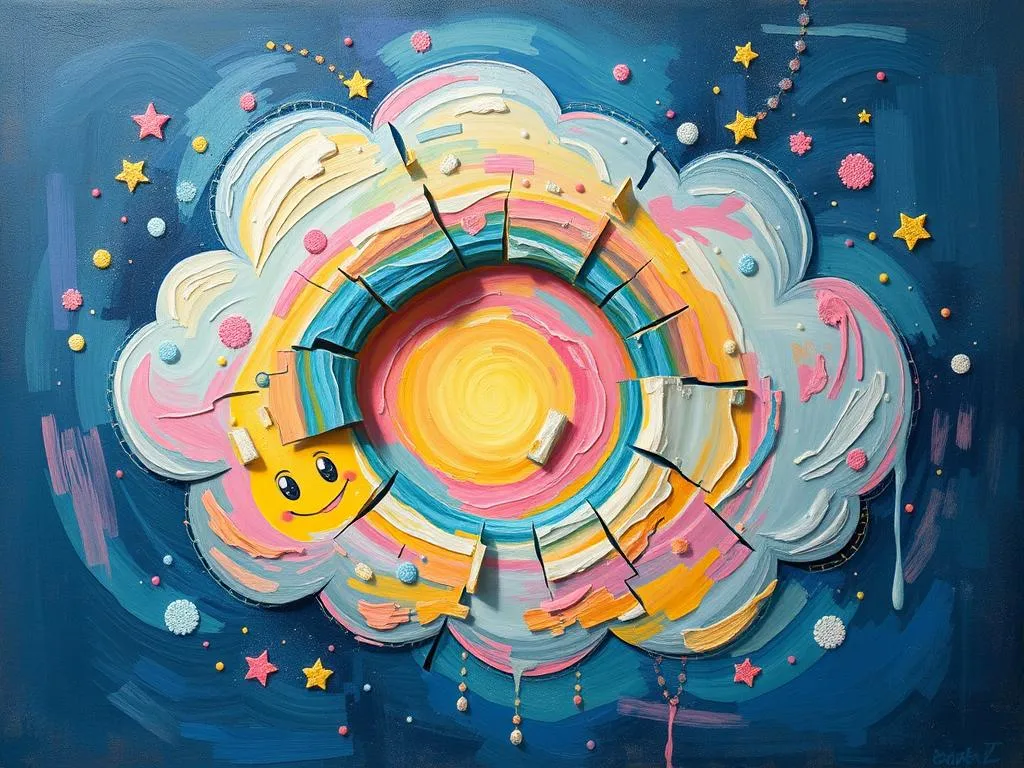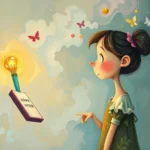
Have you ever woken up from a dream, your heart racing, your mind swirling with images that felt too vivid to ignore? Dreams often leave us feeling puzzled or intrigued, like pieces of a jigsaw puzzle scattered across our subconscious. They are the whispers of our inner selves, begging for attention and understanding. In this article, we’ll unravel the myriad symbols that grace our nightly adventures, combining insights from psychology, cultural perspectives, and practical advice.
Dreams are not merely random flashes of the imagination; they are powerful reflections of our inner world. By exploring the meanings behind our dreams, we can gain clarity on our emotions, fears, and desires. So, grab a cup of your favorite beverage and get comfortable as we embark on this journey of exploration together.
The Language of Dreams: Decoding Symbolism
Dreams speak in a unique language of symbols that can be both personal and universal. Each symbol may hold a different meaning depending on your experiences, beliefs, and cultural background. Here are a few significant symbols and their interpretations that can help you better understand your nighttime narratives:
-
Water: Often associated with the emotions, water can signify a range of feelings. Calm seas might indicate peace and tranquility, while turbulent waters could represent chaos or uncertainty. In many cultures, water is viewed as a cleansing force, suggesting a need for emotional release or purification.
-
Flying: This exhilarating experience can symbolize freedom and the desire to rise above challenges. It may also indicate a wish to escape from constraints in your waking life. However, if you feel out of control while flying, it might point to feelings of anxiety or insecurity about your life’s direction.
-
Teeth Falling Out: A common dream that many people experience, this symbol can evoke feelings of vulnerability and self-image concerns. In some cultures, losing teeth signifies a fear of aging or losing power. It can also indicate a fear of saying the wrong thing or feeling inadequate in social situations.
-
Chasing: If you find yourself being pursued in a dream, it often reflects feelings of stress or avoidance in your waking life. This symbol can also indicate that you are running from an issue that needs confronting. The identity of the pursuer may provide further insights into what you’re avoiding.
-
Death: While it may seem frightening, dreams about death often symbolize transformation and change. They can indicate the end of one phase of life and the beginning of another, signaling personal growth or a need to let go of something that no longer serves you.
Understanding these symbols can empower you to decode your dreams more effectively. The key is to reflect on how these symbols resonate with your current life circumstances and emotions.
Journeys Through the Dreamscape: Personal Scenarios
To further unravel the meaning behind your dreams, let’s explore some common scenarios that many people encounter. These experiences can provide valuable context for interpreting your own dream narratives.
1. The Endless Hallway
Imagine walking down an endless hallway where the doors seem to multiply as you go. You’re unsure which door to choose, and the pressure of time weighs heavily on you. This dream often signifies feelings of indecision or being at a crossroads in life. The endless options can represent anxiety about making the wrong choice. Reflect on areas of your life where you feel stuck, and consider taking small, actionable steps forward.
2. The Public Performance
You find yourself on stage, unprepared, with an audience staring expectantly at you. This scenario can evoke feelings of vulnerability and fear of judgment. It’s common for people to dream about public speaking or performances when they feel exposed in their waking lives. This dream might suggest a need to address insecurities or to prepare more thoroughly for upcoming challenges.
3. The Lost Object
Picture yourself frantically searching for a lost wallet or phone, feeling panic rise as you realize it’s nowhere to be found. This dream could symbolize a fear of loss—whether it’s related to security, identity, or relationships. It may be time to evaluate what you value most and ensure that you’re not neglecting those areas in your life.
4. The House of Mirrors
In this dream, you navigate a maze of mirrors, each reflecting a different version of yourself. This scenario often represents self-reflection and the desire to understand your true identity. It can indicate that you are grappling with who you are versus who you present to the world. Consider taking time for introspection and exploring your authentic self.
5. The Unfamiliar Place
You find yourself in a strange city or location, feeling lost and unsure of how to navigate your surroundings. This dream can reflect feelings of disorientation or being overwhelmed by new experiences. It may also signal a fear of change or entering unknown territories in your life. Embrace this opportunity for growth and remember that it’s okay to seek guidance when navigating new experiences.
Each of these scenarios can provide insight into your emotional landscape and can guide you toward understanding what your subconscious is trying to communicate. Remember, dreams are deeply personal, and their meanings can vary significantly from person to person.
Transformative Insights: Growth Through Dreaming
Dreams are more than just chaotic narratives; they are gateways to personal growth and self-discovery. Here are some actionable insights to help you harness the power of your dreams for your personal development:
-
Keep a Dream Journal: Begin documenting your dreams as soon as you wake up. Write down every detail you can remember, including emotions and symbols. Over time, you’ll start to notice patterns and recurring themes that can provide deeper insight into your subconscious.
-
Reflect on Emotions: After recording your dreams, take a moment to reflect on how they made you feel. Emotions play a crucial role in dream interpretation. Understanding the feelings associated with your dreams can help clarify what aspects of your waking life require attention.
-
Research Cultural Interpretations: Different cultures have unique perspectives on dream symbolism. Delving into these interpretations can broaden your understanding and provide new avenues for insight. Consider exploring folklore or traditional beliefs that resonate with your experiences.
-
Use Dreams as a Tool for Problem Solving: If you’re facing a dilemma in your waking life, pose the question to your subconscious before sleep. Often, dreams can provide creative solutions or reveal underlying fears connected to the issue at hand.
-
Embrace Change: Recognize that dreams about change or transformation are often invitations to embrace growth. Even if these dreams stir feelings of discomfort, they may signify that you are on the verge of a breakthrough. Trust the process and remain open to new possibilities.
As you navigate the intricate landscape of your dreams, remember that they are invitations to explore your inner world. Each dream, filled with rich symbolism and emotion, offers an opportunity for self-discovery and understanding.
Ultimately, the journey through our dreams can reflect our waking life’s complexities, fears, and desires. By approaching them with curiosity and openness, we can uncover profound insights that guide us on our path to personal growth.
So tonight, as you drift off to sleep, invite your dreams to share their wisdom with you. Who knows what hidden treasures await in the realms of your subconscious? Remember, every dream is a step towards understanding yourself better, and that journey is worth every moment spent unraveling its mysteries.







